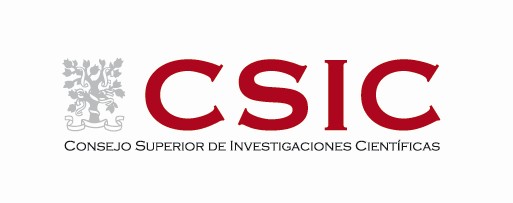The Material Science Institute of Madrid gets five Marie Skłodowska-Curie projects at the same call
The Material Science Institute of Madrid (ICMM - CSIC), part of the Spanish National Research Council (CSIC) got five Marie Skłodowska-Curie (MSC) projects at the same call for 2023. With this, the centre is clearly situated at the cutting edge of European science, as we have got two doctoral networks, two postdoctoral fellowships, and one citizen project.
Ricardo García, Research Professor at the ICMM, is one of the heads of the project SPM4.0: 'Autonomous Scanning Probe Microscopy for Life Sciences and Medicine powered by Artificial Intelligence'. With a budget of 3.9M€, the objective of the SPM4.0 Doctoral Network is to train a new generation of researchers in the science and technology of autonomous Scanning Probe Microscopes powered by Artificial Intelligence for applications in the Life Science and Medical fields.
"The researchers of the network will acquire state-of-the-art multidisciplinary scientific training in advanced scanning probe microscopy and machine learning and in their biological and medical applications", says García. In addition, these new researchers will receive training on complementary and transferable skills to increase their employability perspectives and to qualify them to access to responsibility job positions in the private and public sectors. "The final aim is to promote the wide adoption of SPM4.0 technologies in public and private research centers and in industrial and metrology institutions and to explore new horizons in the Life Sciences and Medical sectors", he concludes. This is the second MSC project got by García's group, which demonstrates "the strength of the ICMM in this type of advanced microscopy methods".
Sol Carretero, Tenured Scientist at the ICMM, is one of the leaders of the project SPARKLE: 'Scientific training Programme for Advanced Research and Knowledge in Light-Matter Engineering'. The plan of this consortium of 14 partnerts will build a mixed experimental and theoretical network to develop the necessary tools and techniques to exploit lightmatter coupling to manipulate materials functionalities. "SPARKLE will bridge the gap between photonics on the one hand and materials science on the other, by advancing the understanding of light-matter interaction via two distinct yet complementary approaches: the utilization of tailored laser fields and the confinement of light in optical environments, called cavities", says the researcher.
The Material Science Institute of Madrid has got two postdoctoral fellowships as well. Specifically, Borja Cirera, who is now a Talento CM Researcher, has been selected to develop a postdoctoral MSC with José Ángel Martín Gago. His project, entitled PlasmOSS: 'Plasmon-mediated On-Surface Synthesis', aims to to combine Cirera's expertise on scanning probe microscopy (SPM) and plasmonic nanocavities with the large experience of the ICMM in OSS, targeting to direct plasmon-mediated chemical reactions on surfaces at the atomic scale.
"Specifically, this proposal seeks to investigate three model photodimerization reactions, exploring the conditions under which the SPM-controlled optical hotspot -used for tip-enhanced Raman spectromicroscopy- can be transformed into a chemical hotspot with improved selectivity and efficiency", says Cirera. Furthermore, his goal is to elucidate the mechanisms governing tip-induced PMCRs, with the ultimate aim of controlling the fabrication of low-dimensional extended polymers with molecular precision using visible light. "The synergistic integration of these innovative methodologies will decisively contribute to the successful realization of the project", concludes the researcher.
Christopher W. Wächtler, now at the Department of Physics of the University of California at Berkeley, will join the ICMM to work with Gloria Platero on a project entitled BoFTISync: 'Topological synchronization of interacting bosons and Floquet engineering'. "With a unique interdisciplinary approach of integrating topological concepts with dynamical symmetries of interacting bosonic modes and open quantum systems, the project aims to establish topology as an innovative way to protect quantum signatures of synchronization, and at the same time opens the avenue for unexplored phenomena at the interface of these seemingly distinct research areas", explains the project.
"This investigation is not only fundamentally interesting, but will also spark new applications in quantum technologies and information processing in NISQ platforms ranging from trapped ions to optomechanics", they defend. "Thus, BoFTISync will prepare the ground for a deeper understanding on topology in open nonlinear systems".
Finally, the ICMM is also part of the citizen network 'NIGHTMADRID', in which we coordinate ten CSIC centers during The European Researchers' Night (ERN) and others outreach activities during the year. Led by Jesús Ricote as deputy director of the ICMM, this event is held annually across various cities in Europe to showcase the impacts of science and research in fun and inspiring ways. Activities taking place throughout the year will include visits by researchers to schools and visits by students and teachers to researchers’ workplaces. The aim is to put across the message that science and research are exciting pursuits and accessible to all.
ICMMSor Juana Ines de la Cruz, 3 |  |
Contacto | Accesibilidad | Aviso legal | Política de Cookies | Protección de datos

